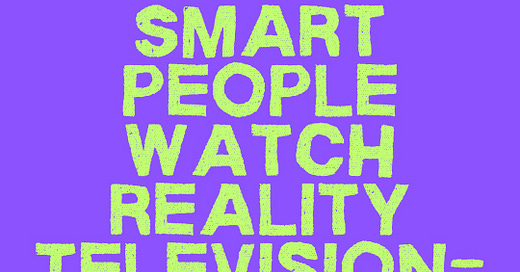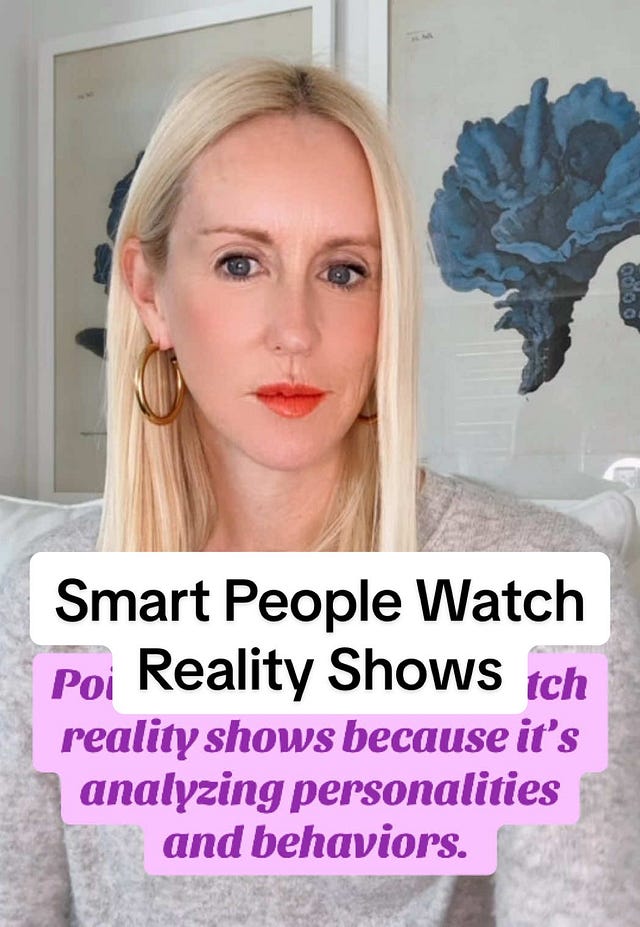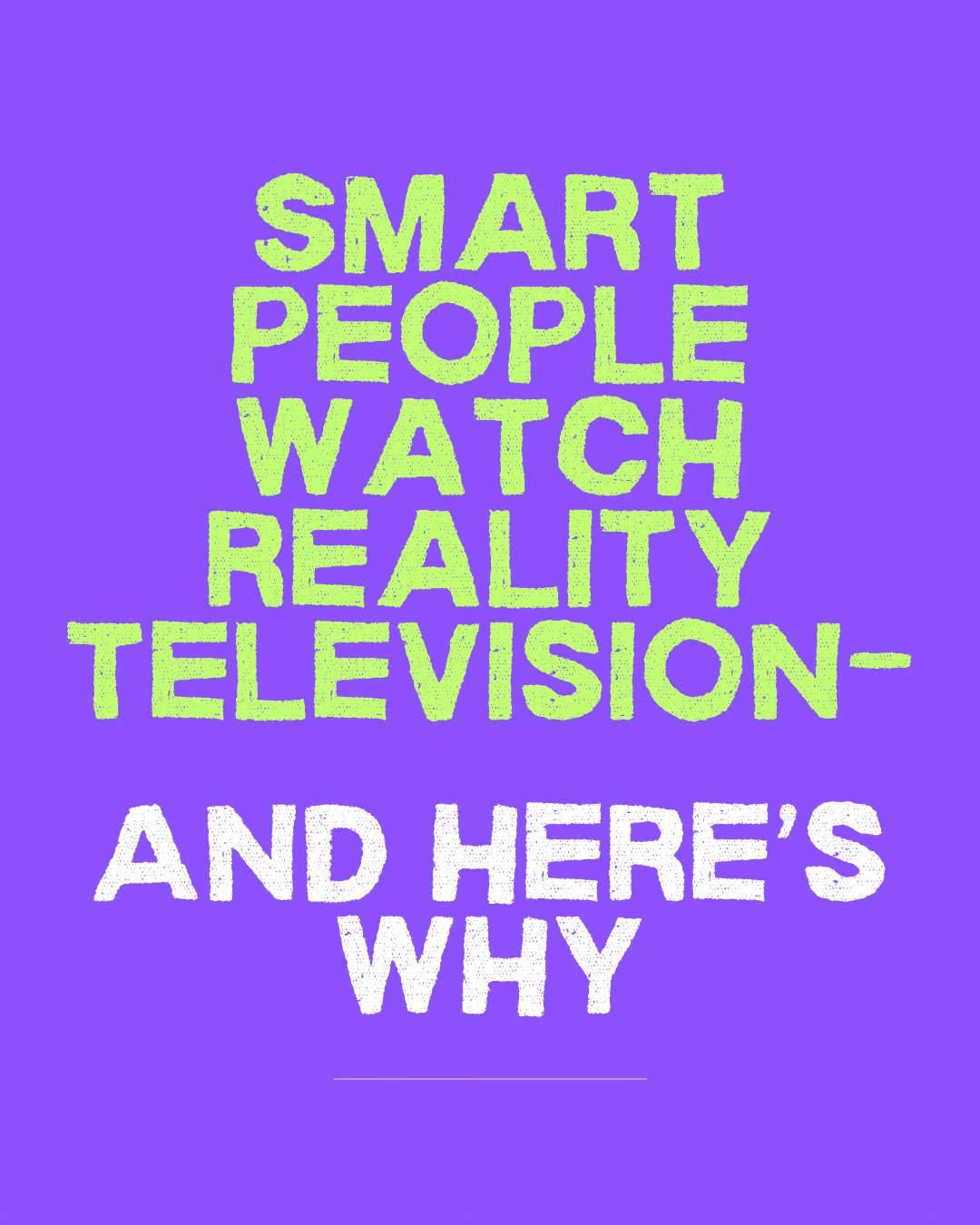Smart people watch reality television.
I know this because I’ve hosted a podcast about unscripted TV for almost nine years. In fact, I even made a video on TikTok and Instagram explaining that smart people watch reality television—and it went viral. The overwhelming response confirmed what I already knew: reality TV isn’t just for passive consumption. It’s a cultural conversation, and smart people are tuned in.
On my podcast, Reality Life with Kate Casey, I regularly interview not only the people featured on reality shows, but also the directors, executive producers, and editors who craft them. These interviews have led to some of the most insightful conversations I’ve ever had—across every genre, from dating shows and docuseries to survival competitions and true crime. The people behind these shows are intentional storytellers who understand human psychology, cultural trends, and audience behavior in powerful ways.
As I often say: people who watch reality television are cultural anthropologists. They observe, interpret, and make meaning of behavior, rituals, and social dynamics as they unfold on screen. The smartest viewers aren’t just watching—they’re studying.
Reality television is often dismissed as “lowbrow” or “mindless,” but that’s a misconception. These shows function like social experiments, offering opportunities to analyze personalities, relationships, and group behavior. They challenge our assumptions, provoke meaningful discussions, and act as social bridges, helping people connect through shared stories and themes.
Take The Real Housewives, for example. It centers around women over 35—an age group often underrepresented in mainstream media—and explores themes of identity, power, and social capital. The reunion shows alone are masterclasses in conflict resolution and emotional intelligence. Survivor is a brilliant exploration of deception, strategy, and group dynamics. Dating shows like The Bachelor and Love is Blind highlight psychological patterns and raise complex questions about attraction and communication. Investigative series like The First 48, Cold Justice, and Forensic Files offer insight into criminal behavior, human motivation, and justice systems.
Reality television gives us a window into other people’s lives. It exposes us to different values, cultures, struggles, and worldviews—broadening our understanding of the human experience. And in today’s hyperconnected media environment, these shows shape conversations, influence trends, and even reflect societal shifts.
Reality television isn’t junk food—it’s a mirror, reflecting not just entertainment, but deeper societal issues, human behaviors, and emotions. It’s a platform for analysis, critical thinking, and cultural dialogue.
So, yes—smart people watch reality television.







Lol are you trying to boost my ego? Because you succeeded. These shows aren’t trash and the real housewives don’t only just fight with each other. And it says something that RH is one of the few shows that completely passes the Bechdel Test. This was a great post!
I agree with the point you’re making. I think that smart people may also watch these shows for the entertainment value. After a hard day operating on brains, you might to watch something that is silly!